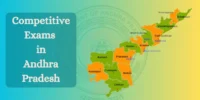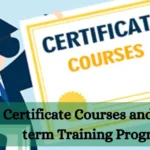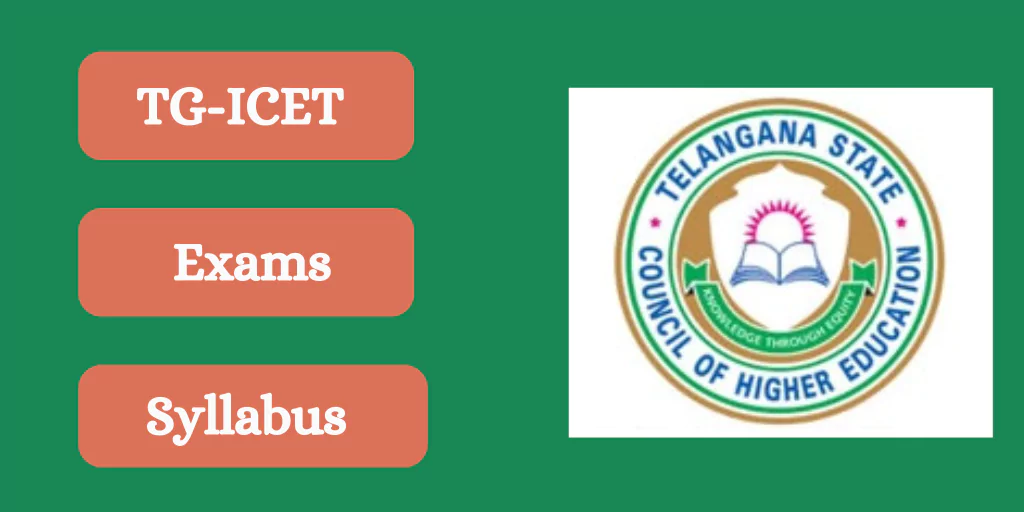Recently updated on December 31st, 2024 at 07:58 am
AP TET Syllabus 2024: Paper 1
The AP TET syllabus for Paper 1 includes topics such as Child Development and Pedagogy, Language I, Language II, Mathematics, and Environmental Studies. The AP TET Paper 1 syllabus is almost identical to Parts A and B.
The only modest difference is between the Child Development and Pedagogy Syllabus for Parts A and B. It should be mentioned that the AP TET Paper 1 Part A syllabus is for ordinary school teachers, whereas the Part B syllabus is for special education teachers.
Check out the detailed AP TET Paper 1 curriculum for Parts A and B below:
AP TET CDP Syllabus 2024:
Child Development and Pedagogy Part A
Development, Growth, and Maturation: Concept and Nature, Differences Between Growth and Development.
- Principles of development and their educational implications
- Factors impacting development: biological, psychological, sociological, and emotional.
- Dimensions of Development and Their Interrelationships: Physical, Motor, and Cognitive
- Emotional, social, moral, and language issues concerning infancy, early childhood, late childhood, and adolescence.
- Understanding Development: Piaget, Kohlberg, Chomsky, Carl Rogers, and Erikson
- Individual Differences: Concept and Types (Intra & Inter) Individual differences (hereditary and environmental)
- Factors that influence individual differences in the areas of attitudes, aptitude, interest, habit, intelligence, creativity, values, level of aspiration, self-concept, and achievement. – Intelligence: Definition and meaning, types of intelligence, theories of intelligence, aptitude, interest, attitude, creativity, thinking, and reasoning.
- Metacognition: Meaning, Concept, Nature, Applications, Aspects of the Metacognition Process, and Experimental Learning
- Personality Development: meaning and idea of personality, definitions, characteristics, personality aspects and factors, personality theories, and personality evaluation (projective and non-projective).
- Mental health, adjustment, and behavioural issues, including disputes, frustration, tension, worry, mall adjustment, and a defence mechanism.
- Methods and Approaches for Child Development: Introspection, observation, interviews, and case studies.
- Developmental tasks and hazards: experimental, cross-sectional, and longitudinal studies.
Understanding Learning
- Learning: Meaning, Concept, Definitions, Learning Characteristics, Learning Types, Learning Determinants, Readiness, Maturity, and Motivation, Learning Curves.
- Factors of Learning: Personal and Environmental • Three dimensions of learning: cognitive, affective, and psychomotor.
- Motivation and Sustainability: Their Role in Learning.
- Concept: Meaning, Definition, Concept Formation, Concept Classification, Concept Types, Concept Development, and the Teacher’s Role in Conceptual Development.
- Perception: Concept, Meaning, Definitions, Perception Process, Characteristics, Perceptual Organization Laws, and Perception Influencing Factors.
- Memory and forgetting.
- Transfer of Learning Approaches and Their Applicability: Behaviorism (Skinner, Pavlov, Thorndike), Gestalt (Kohler, Koffka), Observational (Bandura), Constructivism (Piaget, Vygotsky), Bruner’s Theory of Instruction, Experimental Learning.
Pedagogical Concerns
- Teaching’s relationship to learning and the learner.
- Learners in Contexts: Placing learners in their sociopolitical and cultural contexts
- Children from various backgrounds—Children with Special Needs (CWSN), Inclusive Education.
- Understanding of pedagogical methodologies, including inquiry-based learning, project-based learning, surveys, observations, and activities, as well as cooperative and collaborative learning. Learning occurs both individually and in groups.
- Issues and concerns about structuring learning in the classroom, such as study habits, self-learning, and learning to learn techniques.
- Organizing learning in diverse class groups Socioeconomic Background
- Ability and Interests.
- Three paradigms for structuring learning are centric, subject-centric, and learner-centric.
- Theory of Instruction, Bruner
- Teaching as a Planned Activity: Elements of Planning
- Teaching Phases—Pre-active, Interactive, and Post-active
- General and subject-specific abilities, teaching competencies, and characteristics of an effective facilitator.
- Learning Resources: Self, Home, School, Community, Technology.
- Classroom Management: Student and teacher roles, teacher leadership style, creating a non-threatening learning environment, managing behaviour problems, guidance and counselling, punishment and its legal implications, children’s rights, and time management.
- The difference between assessment for learning and assessment of learning.
- ICT
Child Development and Pedagogy Part B (Special Education)
Child Development
- The Nature of Child Development.
- Principles and strategies for growth and development
- Theories of Learning and Methods for Child Study
- Individual variances.
Pedagogy and Special Education
- Characteristics and educational requirements of children with special needs.
- Types and procedures of assessing children with special needs.
- Curriculum Development and Adaptations
- Concept of Individual Educational Plan and Individualized Family Services Plan
- Teaching Strategies for Children with Special Needs
Education Commissions and Policies (School Education)
- Education-related constitutional provisions that embody national ideals such as equality, liberty, secularism, and social justice
- National Commissions and Policies: Education Commission (1964); NPE and POA (1986, 1992); National Policy for Persons with Disabilities (2006).
- Acts: RCI Act (1992), PWD Act (1995), NT Act (1999), and RTE Act (2009, 2012). RPWD Act, 2016
- Programs and Schemes: IEDC (1974, 1983), SSA (2000, 2011), RMSA 2009, and IEDSS 2009.
- International Conventions and Policies: Salamanca Declaration and Framework (1994), UNCRPD (2006), MDG (2015), and INCHEON plans.
AP TET Maths Syllabus 2024: Paper 1 (Parts A and B)
The AP TET syllabus for mathematics covers topics from the following sections:
- Numbers
- Mensuration
- Geometry
- Data Management
- Algebra
- Arithmetic
- Pedagogy
AP TET EVS Syllabus 2024:
Environmental Studies Paper 1 (Parts A and B)
The AP TET syllabus for Environmental Studies (EVS) contains topics from the categories below:
- Living World
- Life Processes.
- Natural phenomena
- Transportation and Communication
- Professional Services
- The Environment
- Our Universe
- Production Exchange and Livelihoods
- Political Systems and Governance.
- Social Organization and Inequities
- Religion & Society
- Culture and Communication
- Pedagogy
Conclusion
The APTET Syllabus 2024 is a thorough handbook that describes the key topics and exam patterns required for successful preparation. By being acquainted with the syllabus, you can concentrate your study efforts on the main areas, resulting in a well-rounded preparation strategy.
Understanding the exam’s format and requirements can not only boost your confidence but also increase your chances of landing a teaching job. Stay up-to-date and prepared to achieve your educational career objectives.







Georgegus
August 29, 2024Крупнейший маркетплейс https://accounts-shop-gg.com предлагает возможность купить рекламные сущности под залив. Когда вы планируете купить аккаунт Facebook для рекламы, обычно задача не в «одном логине», а в качестве фарма: стабильный запуск, наличие пройденного ЗРД в Ads Manager и правильно созданные ФП. Мы собрали практичный чек-лист, чтобы вы сразу понимали какой лимит выбрать перед покупкой.Навигация по теме: типы БМов и лимиты. Важно: покупка — это только вход. Дальше решает подход к запуску: как вяжется карта, как вы передаете лички аккуратно, как реагируете на полиси и как масштабируете адсеты. Главная фишка этого шопа — заключается в наличии огромной вики-энциклопедии FB, в которой опубликованы рабочие рекомендации по разбану кабинетов. Здесь можно найти решения Facebook под любые цели: от миксов до мощными Кингами с документами. Покупая здесь, вы получаете не просто валидный профиль, а также оперативную поддержку, прозрачные правила чека, страховку на момент покупки и максимально приятные прайсы на рынке FB-аккаунтов. Дисклеймер: используйте активы законно и всегда в соответствии с правилами Facebook.
Taylor Olivo
August 29, 2024Thank you for some other fantastic post. The place else may just anybody get that kind of information in such an ideal approach of writing? I have a presentation next week, and I’m on the search for such information.
Pepeta Bet
August 29, 2024Good post. I learn something totally new and challenging on websites I stumbleupon everyday.
It’s always useful to read content from other authors and practice a little something from other websites.
bang-bet.win
August 29, 2024I visited multiple web sites however the audio quality
for audio songs current at this website is genuinely wonderful.
AU88
August 29, 2024Yesterday, while I was at work, my cousin stole my apple
ipad and tested to see if it can survive a 40 foot drop, just so she can be a youtube sensation. My apple ipad is now
broken and she has 83 views. I know this is completely off topic but I had to share it with
someone!
Ilotbet
August 29, 2024I’m not that much of a online reader to be honest but
your blogs really nice, keep it up! I’ll go ahead and bookmark
your site to come back later on. Many thanks
https://zus.uk.com/
August 29, 2024I all the time used to read piece of writing in news papers but now as I am a user of web thus from now I am using net for
articles or reviews, thanks to web.
https://dumpsbuy.ru.com/
August 29, 2024I have read so many content concerning the blogger lovers however
this paragraph is actually a fastidious paragraph, keep it up.
먹튀검증
August 29, 2024Spot on with this write-up, I honestly believe this website needs a lot more attention. I’ll probably be back again to see more,
thanks for the information!